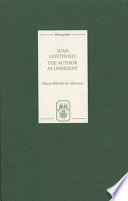 The word in language is half someone else's. It becomes "one's own" only when the speaker populates it with his own intention, his own accent, when he appropriates the word, adapting it to his own semantic and expressive intention. The word in language is half someone else's. It becomes "one's own" only when the speaker populates it with his own intention, his own accent, when he appropriates the word, adapting it to his own semantic and expressive intention.  The Bakhtin Circle Today - Página 133editado por - 1989 - 229 páginasVista previa limitada The Bakhtin Circle Today - Página 133editado por - 1989 - 229 páginasVista previa limitada - Acerca de este libro
 | Brenda Jo Brueggemann - 2004 - 232 páginas
...own language? Why must literacy for Deaf students mean English literacy? CHOOSING OUR OWN LANGUAGE The word in language is half someone else's. It becomes...own" only when the speaker populates it with his own intentions, his own accent, when he appropriates the word, adapting it to his own semantic and expression... | |
 | Norman Duncan - 2004 - 348 páginas
...spheres of communication (Bakhtin, 1981; Shotter, 1993). Bakhtin (1981) expressed this as follows: The word in language is half someone else's. It becomes...'one's own' only when the speaker populates it with his [sic] own intention, his own accent, when he appropriates the word, adapting it to his own semantic... | |
 | Derek Hook - 2004 - 676 páginas
...spheres of communication (Bakhtin, 1981; Shotter, 1993). Bakhtin (1981) expressed this as follows: The word in language is half someone else's. It becomes...'one's own' only when the speaker populates it with his [sic] own intention, his own accent, when he appropriates the word, adapting it to his own semantic... | |
 | Hersholt C. Waxman, Roland G. Tharp, R. Soleste Hilberg - 2004 - 302 páginas
...shaped in socioculturally specific ways during classroom activities. Bakhtin points out that a word in a language is half someone else's. It becomes one's own only when the speaker populates it with his or her own intentions and accent or appropriates the word, adapting it to his or her own semantic and... | |
 | Elizabeth Harney - 2004 - 356 páginas
...the oppressor shared linguistic codes, operating within a common discursive universe. Bakhtin writes: The word in language is half someone else's. It becomes "one's own" only when . . . the speaker appropriates the word, adapting it to his own semantic and expressive intention. Prior to this moment... | |
 | Jeffrey Carroll - 2005 - 208 páginas
...real voices in the world — and which is present only for the purpose of its being spoken back to: [L]anguage, for the individual consciousness, lies...adapting it to his own semantic and expressive intention. Prior to this moment of appropriation, the word does not exist in a neutral and impersonal language... | |
 | Alison Ribeiro de Menezes - 2005 - 222 páginas
...autobiographical act - but one that does not, in the process, silence or destroy the other. As Bakhtin remarks: The word in language is half someone else's. It becomes...adapting it to his own semantic and expressive intention. Prior to this moment of appropriation the word does not exist in a neutral and impersonal language... | |
 | Luis C. Moll - 1990 - 444 páginas
..."ventriloquation" (Bakhtin, 1981; Holquist, 1981), or the process whereby one voice speaks through another. The word in language is half someone else's. It becomes...adapting it to his own semantic and expressive intention. Prior to this moment of appropriation, the word does not exist in a neutral and impersonal language... | |
 | Uta M. Quasthoff, Tabea Becker - 2005 - 320 páginas
...talks about the appropriation of words, Wersch also writes that Bahktin believed that, "The word in a language is half someone else's. It becomes 'one's...adapting it to his own semantic and expressive intention" (John-Steiner 2000, p. 199). The second component, known as plurilingual interaction, is also another... | |
 | Patricia Parker - 2005 - 254 páginas
...2004 Acts of Silence, Acts of Speech: How to Do Things with Othello and Desdemona HARRY BERGER JR. The word in language is half someone else's. It becomes...intention, his own accent, when he appropriates the word. . . . Prior to this moment of appropriation, the word . . . exists in other people's mouths, in other... | |
| |